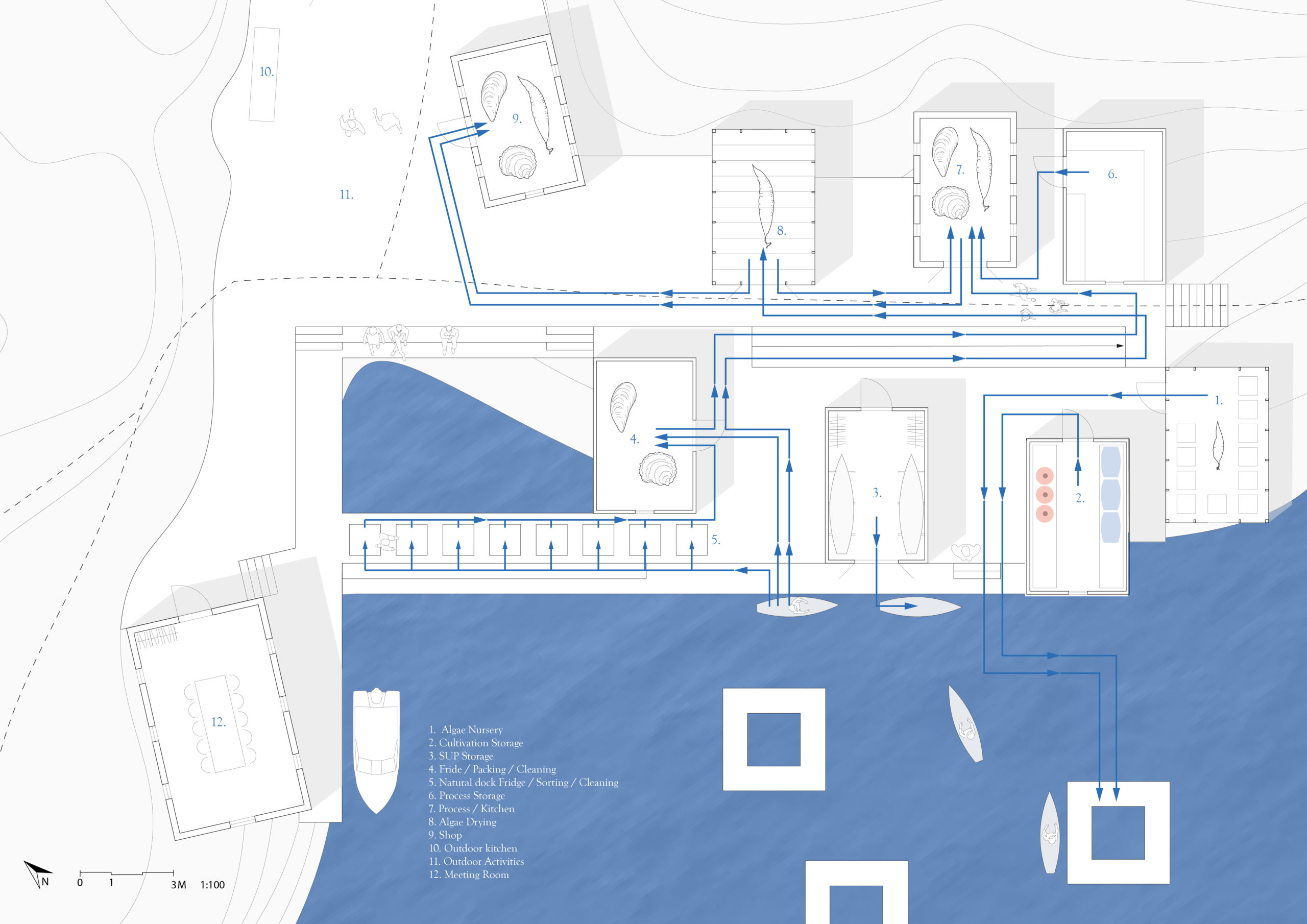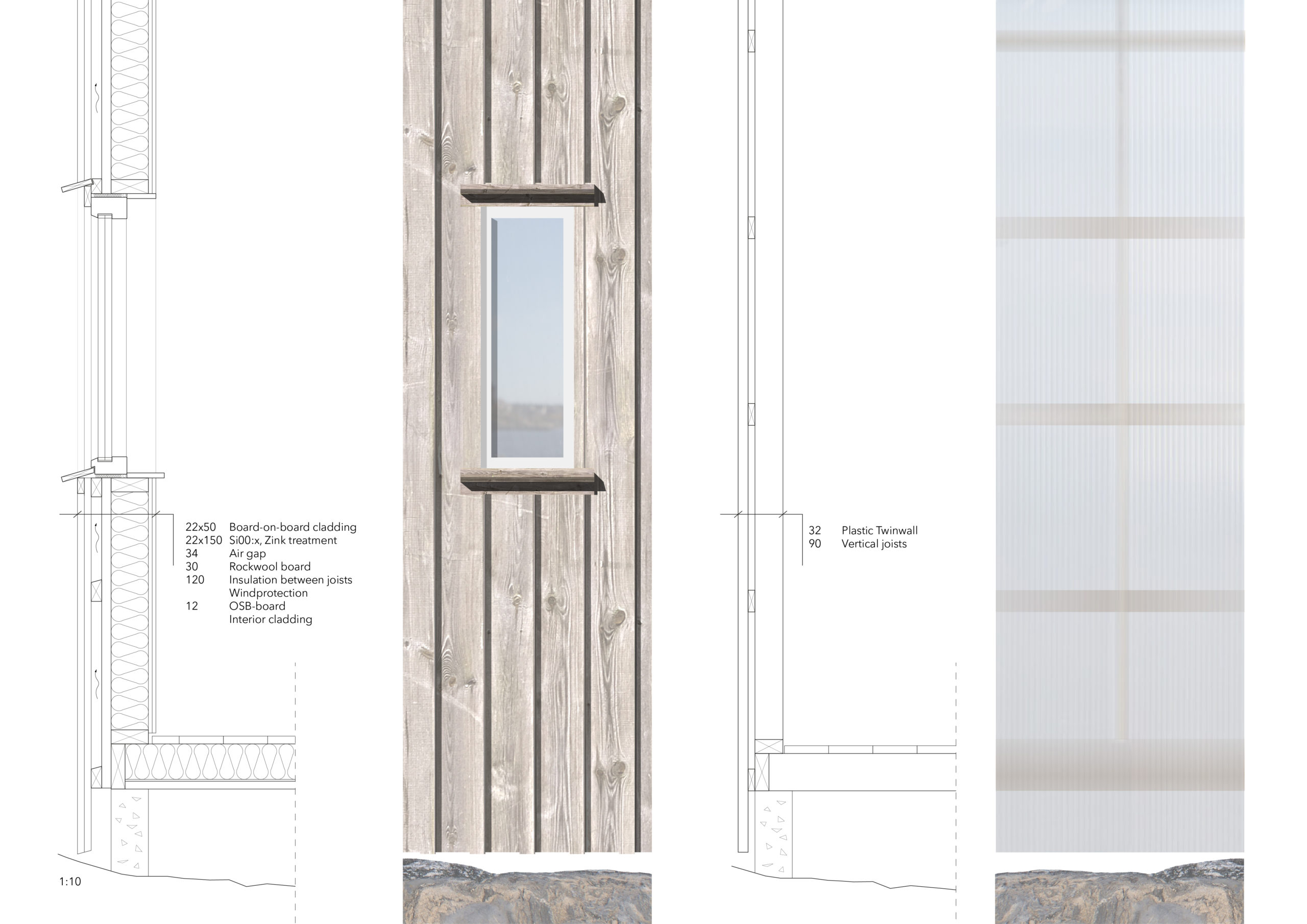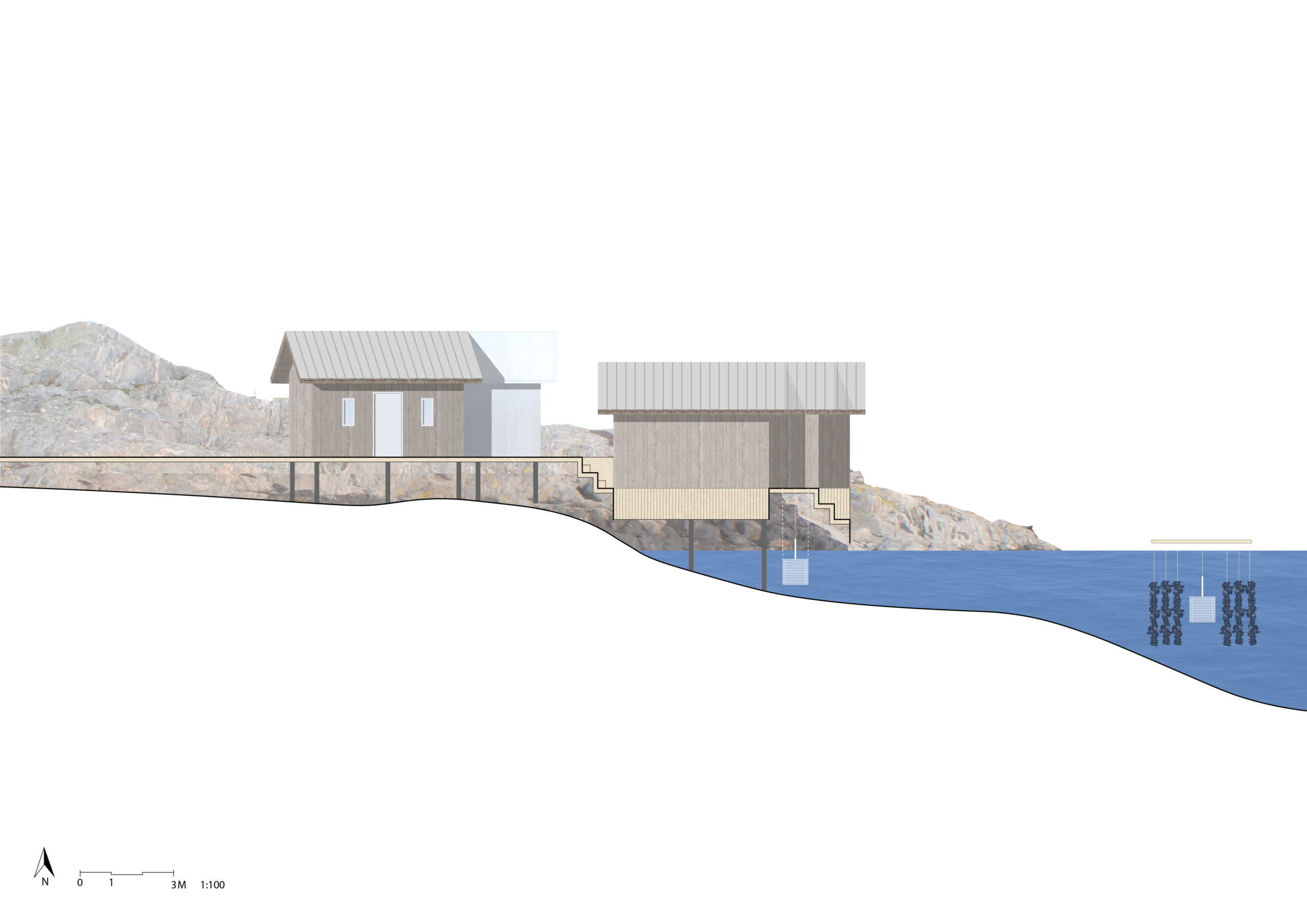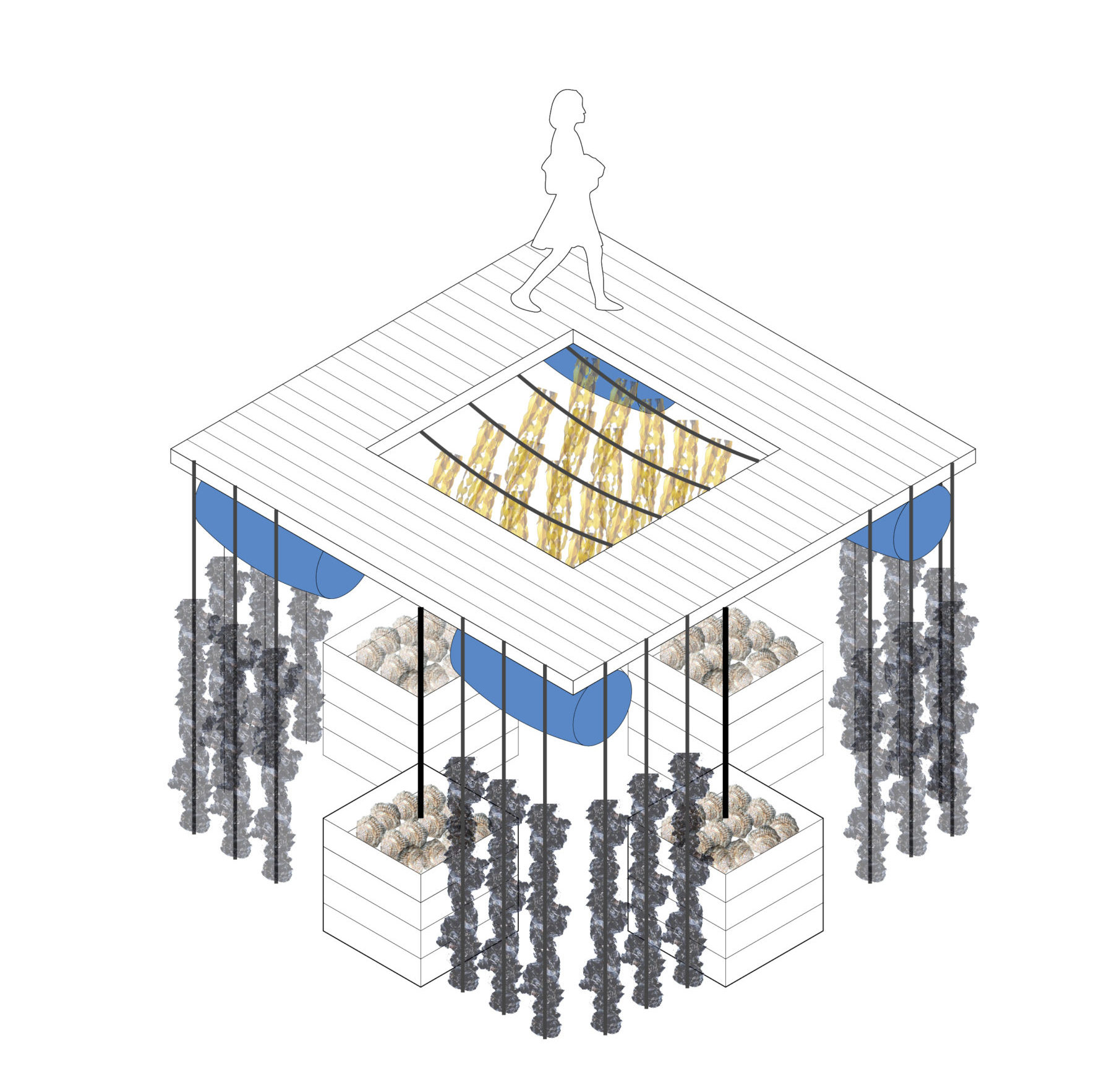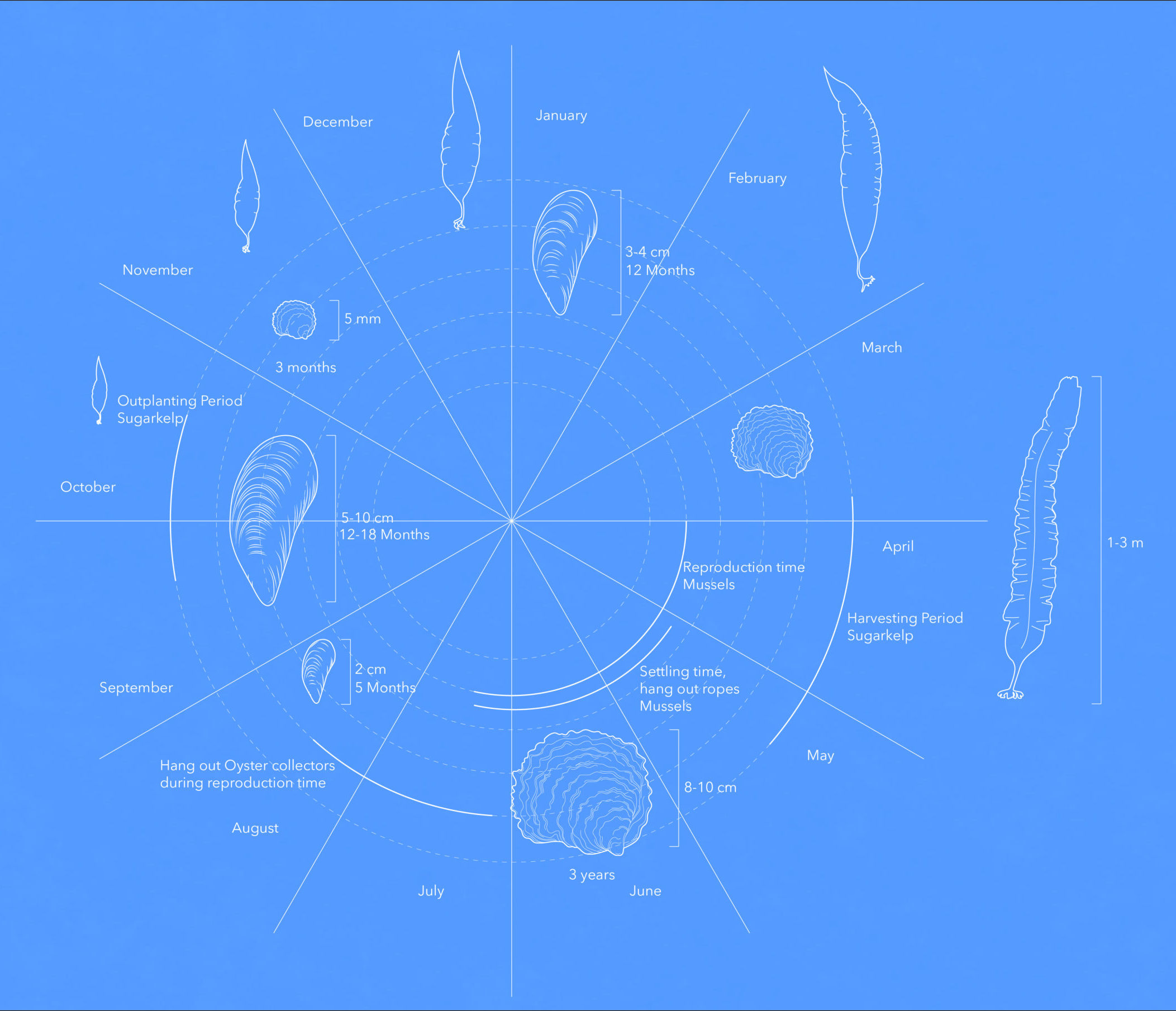REGENERATIVE MARICULTURE
-An architectural exploration of synergies within small scale ocean cultivation, implemented in a design proposal on Hönö.
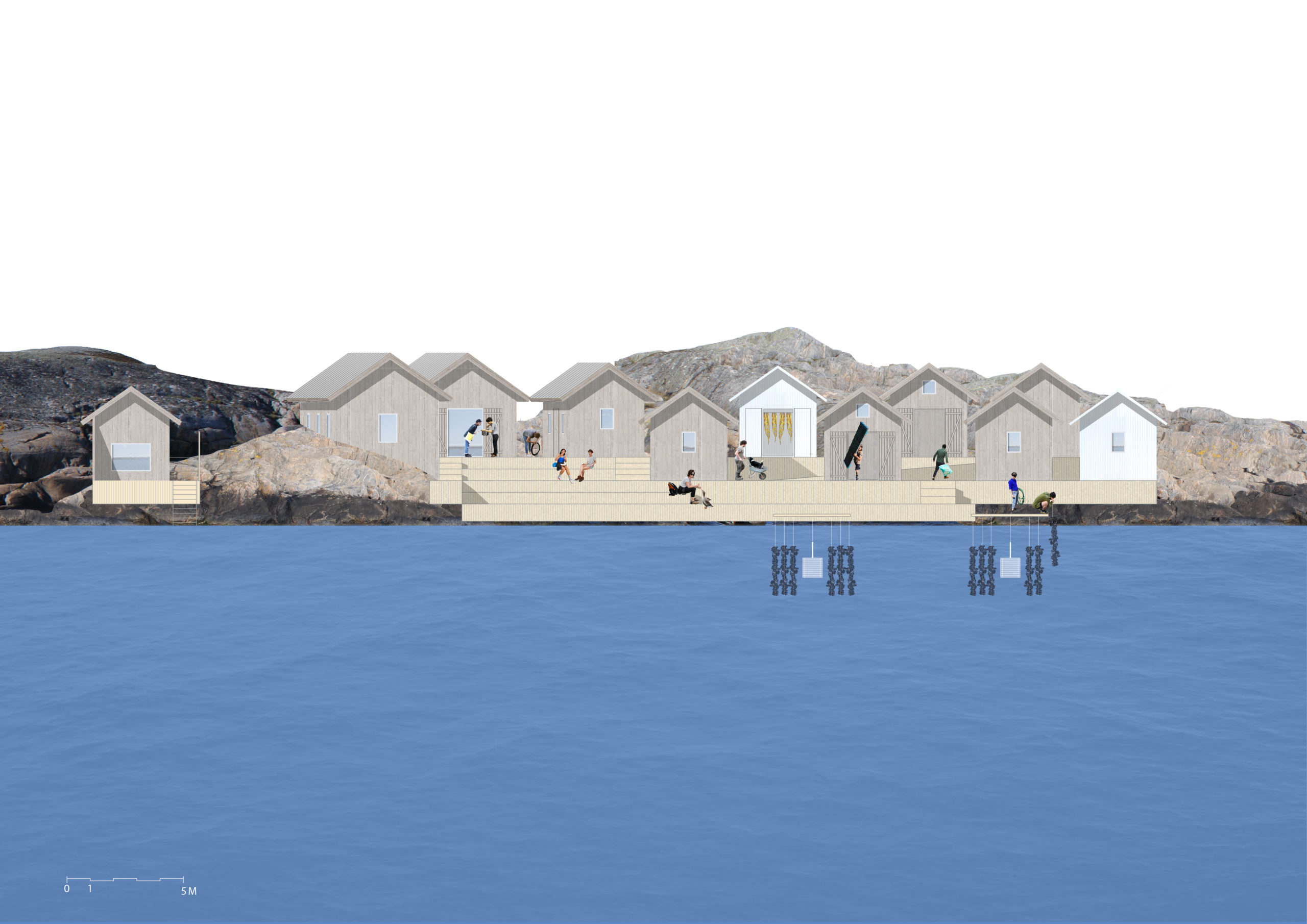
Food is a central part of our everyday lives, yet food production has never been as secluded as today. Our food systems are built on monoculture principles advocating an antagonistic view of natural forces and diversity. This result in greenhouse gas emissions, soil degradation, biodiversity loss and eutrophication of oceans and lakes.
This thesis examines how design can enable sustainable food from sea farming in Bohuslän with the principles of regenerative design. The aim is to illustrate how design can create a closer connection to food, enhance social interactions and increase the awareness of food production and its environmental impact.
The thesis consists of two parts, the design concept of a sea farm and a design proposal implementing the concept on Långholmen south of Hönö. The design proposal empathizes typology, climate, and building tradition of the local site.
The regenerative design principles urge that we rethink the way we design things to find nurturing solutions that enable a positive impact on the environment with increased activity. It is important to see nature both as a model and the context, letting nature do the work and aggregate, not isolate. The word regenerative accentuates the cyclical importance of thriving systems and implies that humanity not only has the power to damage and endure but also to create and nurture.
The result is a cultivation cooperative creating synergies in a local network. The project includes marine allotments and cultivation farms with algae, mussels, and oysters. The small-scale industry and appurtenant buildings enable processing, cultivation, recreation, food workshops and social gatherings. The cultivation cooperative enables members with different knowledge and backgrounds to create a prosperous environment for sustainable food production.
